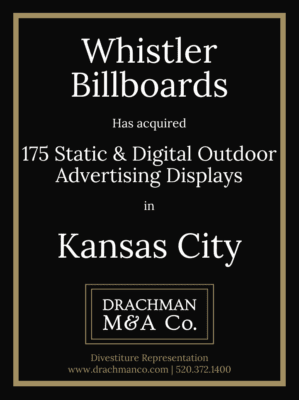 Insider has followed Epic Outdoors’ lawsuits and negotiations over sign regulation in Rapid City South Dakota. Those disputes have been ongoing since 2005 but started in earnest in 2012 when Epic Outdoor filed suit against the City based on a revised sign ordinance which was adopted in 2011.
Insider has followed Epic Outdoors’ lawsuits and negotiations over sign regulation in Rapid City South Dakota. Those disputes have been ongoing since 2005 but started in earnest in 2012 when Epic Outdoor filed suit against the City based on a revised sign ordinance which was adopted in 2011.
Epic thought the had an agreement with the city in June of last year but a vote on a settlement agreement was postponed. Epic went to court and in December the 7th Judicial Court ruled that the city’s Zoning Board of Appeals exceeded its authority by retroactively applying ordinances passed in 2011 prohibiting full motion video against billboards Epic installed in 2005. This week the City Council approved a settlement on a 7-3 council vote.
Brendan Casey, the President of Epic Outdoor discussed the latest developments with Insider.
So how long has the dispute been ongoing with Rapid City? What were the original issues?
This legal action commenced about 2 years ago. The dispute was related to full motion video on “public purpose signs”, an off premise classification invented by the City to enable the City to install an off premise-type sign at the community’s Civic Center. We have run occasional full motion advertisers, and an anti-sign Councilwoman decided to push a new ordinance on us which prohibited full motion. We went to Court to stop the enforcement of this ordinance on these signs, as it was a retroactive application of this ordinance, and we felt we were grandfathered under the old ordinance. The Judge agreed with us.
What are the basics of the settlement?
We ceased the use of full motion in exchange for some ordinance modification in an interstate corridor, a re-classification of certain digital locations to regular billboards, and 2 digital permits along Interstate 90 within the City.
I understand Lamar is looking to come in as a party of interest?
Lamar has intervened in another case filed by Epic, related to a sign credit system within the Rapid City Municipal Code.
Does this wrap up all disputes with the city or are there still additional issues to resolve?
No, we still have filed litigation related to sign credits. We are in the discovery and document production phase of the litigation. Any settlement is difficult and unlikely now that Lamar has intervened. The City has no authority under state law to issue ‘sign credits’, and it essentially serves as a de facto ban in the market, and deprives regular citizens and landowners a fair chance to acquire an off premise sign permit.
You can read more background info and a draft of the settlement agreement at this rcgov.org link.
The city agreed to:
- Increase the maximum allowable size of billboards along I-90 from 250 square feet to 672 square feet.
- Increase the maximum height of billboards from 30 feet to 40 feet.
- Remove the requirement that digital billboards run public service ads for 12 minutes every hour.
- Permit two new digital billboards along I-90 at Dyess Avenue and Deadwood Avenue.
Insider’s take: Another case of municipal overreach comes to an end with a settlement. There’s no way the city was going to win a retroactive application of zoning rules. Removal of a requirement that public service ads run once every 5 flips is also a win. The public ad requirement was analogous to a 20% tax on digital billboards by depriving billboard companies of the inventory.
[wpforms id=”9787″]
Paid Advertisement

















